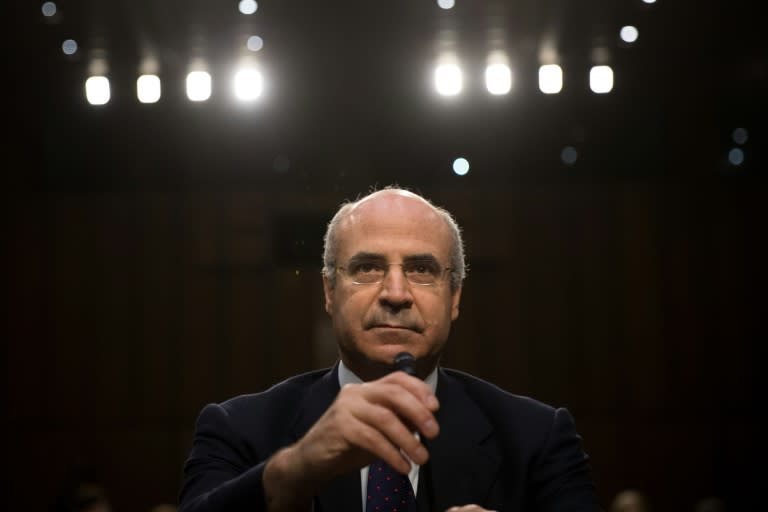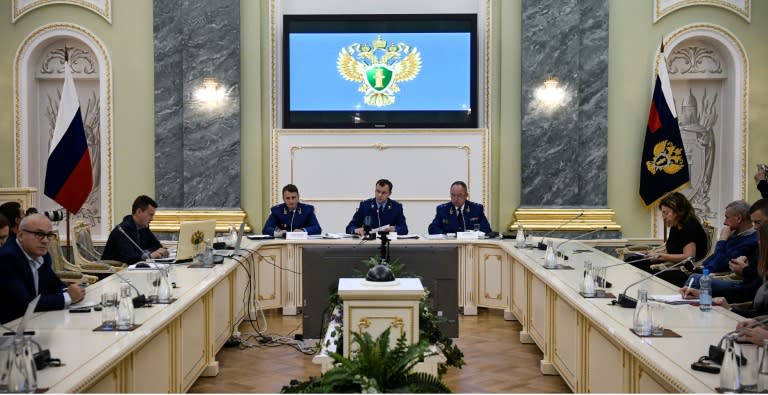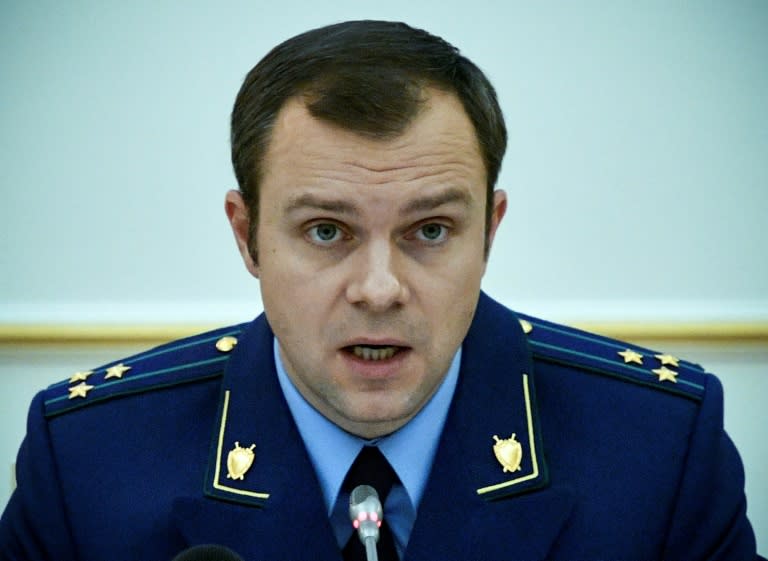Russia targets anti-Kremlin crusader Browder in new probe
Russian prosecutors said Monday they had opened a new criminal probe into anti-Kremlin British financier William Browder, alleging he was a crime boss who could have poisoned several associates. Browder -- who describes himself as Russian President Vladimir Putin's "Enemy Number One" -- dismissed the allegations, saying on Twitter they were Kafkaesque "to say the least". Moscow's new claims against the US-born chief executive of hedge fund Hermitage Capital came as European Union member countries planned to discuss possible new sanctions against Russians implicated in human rights violations. Browder's tax consultant Sergei Magnitsky died in prison of untreated illness in 2009 after accusing Russian officials of $230 million tax fraud. Russia has rejected the claims and convicted Magnitsky of fraud, putting him on trial posthumously. Browder has vowed to avenge his death, pushing the West to adopt legislation punishing Russian officials for rights violations. In a new twist on Monday, a representative of the Russian General Prosecutor's Office, Nikolai Atmonyev, told reporters that a new probe against Browder had been opened on suspicion that he ran a "transnational criminal gang". Browder faces up to 20 years in prison if convicted on the new charges, Atmonyev said. Russia has earlier convicted Browder in absentia of tax evasion and deliberate bankruptcy. Prosecutors also alleged that Browder could be behind the death of four associates including Magnitsky to cover up crimes allegedly committed in Russia. "The Russian General Prosecutor's Office has concluded that it was Browder who was interested in Magnitsky's death," Atmonyev said, adding Browder might have forced Magnitsky to commit perjury. Prosecutors said the four had been killed, possibly by poisoning with a military-grade substance containing aluminium. - 'Putin's fever dream' - Alexander Kurennoi, spokesman for the General Prosecutor's Office, told AFP that it was "highly likely" Browder was responsible. Browder suggested the accusations were a response to British claims that Russian operatives attempted to kill former intelligence agent Sergei Skripal and his daughter Yulia with a military-grade nerve agent in England in March. "Putin's 'fever dream' response to being caught poisoning the Skripals is accusing me of four murders, including poisoning of Sergei Magnitsky," he said on Twitter. "I really struck a nerve." Browder's campaign for Magnitsky has had strong resonance worldwide. In 2012, the United States passed the "Sergei Magnitsky Act" which imposed a visa ban and froze the assets of Russian officials implicated in the lawyer's death. British lawmakers adopted similar measures this year. The legislation became a symbol of prison abuses in Russia and strained ties with the West. On Tuesday, EU member states are set to discuss an EU-wide Magnitsky Act in the Hague. "The conference on the Magnitsky law, organised by the Dutch government with all 28 EU countries, the United States and Canada will be held tomorrow in The Hague," Pieter Omtzigt, a lawmaker from the ruling coalition, told AFP. He said "it could be a big step" towards holding officials accountable. - 'Deceitful scumbags' - Browder also noted that the allegations came just as Interpol was expected to decide this week whether a Russian interior ministry official, Alexander Prokopchuk, should become its new president. Moscow critics fear that if its candidate is confirmed, Russia could abuse Interpol "Red Notices" to hunt down Kremlin opponents. Ukraine said Monday it would consider suspending its membership if a Russian representative was elected. Prosecutors said that Browder would be put on an international wanted list "in the near future". Atmonyev said Russia would seek Browder's extradition within the framework of the United Nations Convention against Transnational Organised Crime, meaning that no country would be able to refuse to hand him over. Russia's previous efforts to put Browder on Interpol's wanted list have been rejected. Magnitsky went public with details of the $230 million fraud by Russian state officials before being charged with tax evasion and later dying in detention after a year in jail. Kremlin critic Alexei Navalny mocked the new allegations against Browder, pointing to previous official findings that Magnitsky had been beaten in prison and died of untreated illnesses. "First they said that (Magnitsky) died from illness. Then that he banged his head against a wall and tortured himself to death. Now that Browder poisoned him. Deceitful scumbags," Navalny wrote on Twitter.




